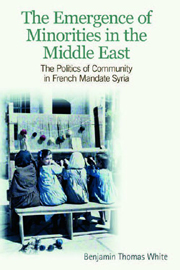Conclusion: Minorities, Majorities and the Writing of History
Published online by Cambridge University Press: 12 September 2012
Summary
The week before I submitted the doctoral thesis on which this book is based, I met an American historian in the library where I was fretting over my footnotes. One day we went for lunch, and she asked me a question: what, in a single sentence, is the argument of your thesis? Somewhere around the fourteenth subordinate clause of my answer I had to accept that I was no longer in the realm of a single sentence, and gave up. I should think about an answer, she told me, since that question often came up in job interviews.
That night, long after midnight, I was walking home from the library down a quiet Oxford street when I suddenly realised that I had the answer. In fact, I could get it down to four words, short enough to fit on a t-shirt: Objective conditions, subjective categories. Or, in the full sentence version: The nationstate form creates the objective conditions in which people begin to consider themselves as majorities and minorities; however, these remain subjective categories.
This book has sought to demonstrate that ‘minorities’ emerged in Syria during the mandate period, as a result of the development of the nation-state form. As state authority spread across the territory, it bound the population more closely together as a single unit under a single set of institutions within fixed borders. For some groups within the population, this fixed them in a state structure where they were a minority; it gave others a sense of belonging to, and the scope for acting as, a ‘majority’ within the state.
- Type
- Chapter
- Information
- The Emergence of Minorities in the Middle EastThe Politics of Community in French Mandate Syria, pp. 209 - 212Publisher: Edinburgh University PressPrint publication year: 2011

